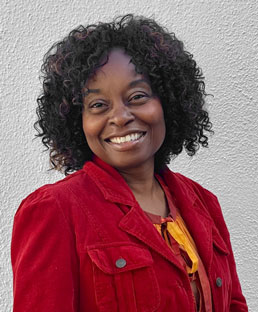We’re all familiar with people who think they’re right, even if they’re wrong. These are the people who never back down, standing firm on their beliefs, regardless of the arguments against them. Even if you bring valid evidence that proves them wrong, they remain unshakable. Or maybe you’re guilty of being one of these people? If so, why do you think you’re right, when you’re wrong?
How beliefs affect the mindset
Julia Galef spent years studying this exact kind of certainty. She wasn’t only interested in how someone could be so sure of something that lacked evidence, but how their minds were unchanged after being proven wrong. She compares us to soldiers, having motivations to survive, protecting ourselves and our side, pursuing to defeat the enemy. Then she compares us to scouts, who’s job is not to attack or defend, but to understand. Scouts go out, map the terrain, plan strategies, and ultimately want to know what’s really out there. It’s important to them to have all the information needed to be as accurate as possible. To Julia, both of these roles are representations of different types of mindsets we could have. She argues that good judgement, making accurate predictions and good decisions, is mostly about what mindset we’re in.
An example from history
To help us understand this, she shares a historical story. In 1894, the French army sent an innocent man to prison for life. They found a torn letter from a fellow officer who was selling military secrets to the Germans. The army was highly anti-semitic and accused Alfred Dreyfus (the only Jewish soldier) of being guilty for the crime. They compared his handwriting to the letter and determined it a match, while handwriting specialists would disagree. They found him guilty when they couldn’t find any evidence in his apartment (which they thought made him sneaky), he learned 4 languages when he was young (which they thought showed his interest to conspire with foreign governments later in life), and because he had good memory (since spies remember everything).
Truth is, they didn’t have strong evidence, but they somehow knew he was guilty. Historians don’t believe the army framed him. The officers genuinely believed Dreyfus was guilty. What does this say about the human mind, that we can find something compelling enough to convict a man to life?
“Motivated reasoning” explained
This is explained as “motivated reasoning,” when our unconscious motivations, desires, and fears shape the way we interpret information. Some ideas and information seem like our allies, while others can seem like our enemy and we want to shoot them down.
We see this happen in sports as well, when a referee makes a call against the other team, we approve and let it go. Yet, if he made a call against your own team, you would look into it and try to prove him wrong. This is the same kind of judgment that affects the way we vote and what we consider to be fair or ethical. The scary part of motivated reasoning is how unconscious it is. We think we’re being objective and fair minded but we’re unconsciously bias.
The truth is not always pretty or convenient
Luckily for Dreyfus, there was a man, Colonel Piquart who noticed military information was still being leaked to the Germans after they imprisoned him. Piquart wondered if Dreyfus actually was innocent. They also found someone else whose handwriting matched the original found letter perfectly. But when Piquart showed his superiors this evidence, they either didn’t care or made irrational reasonings why Dreyfus is still guilty. Piquart did prove Dreyfus’s innocence 10 years later after being imprisoned himself for disloyalty to the army.
Picquart was also anti-semitic, which makes him a hero of this story because he was able to accept and stand for truth regardless of his personal beliefs. He is the poster child for the scout mindset. These people don’t care to win or lose, but just want to see what’s really there as honestly and accurately as possible, even if it’s not pretty or convenient.
How emotions affect judgement
Julia Galef posed the question: Why are some people able to cut through their own prejudice and motivation, able to truly look at something without bias? The answer is emotion. Soldier mindset is rooted in defensiveness and tribalism. Scouts are curious, get pleasure from learning new information. They’re intrigued by something that contradicts their expectations. They think it’s virtuous to test your beliefs. They also don’t see changing your mind as a weakness. Their self worth as a person is not tied to how right or wrong they are about a particular topic. They’re able to accept being wrong without feeling dumb or stupid. This kind of mindset makes for good judgement.
Good judgement isn’t about how smart you are and how much you know. It’s all about how you feel.
How to improve your judgement
If we really want to improve our judgement as individuals and as societies, what we need most is not more instruction, but the scout mindset. We need to change the way we feel. We need to feel intrigued instead of defensive when we encounter some information that contradicts our beliefs.
Julia poses another question: What do you most yearn for? Do you yearn to defend your own beliefs? Or do you yearn to see the world as clearly as you possibly can?
We should all seek the truth. If you’re struggling to accept something that contradicts your belief or maybe you’re feeling misunderstood yourself, please contact Crownview Medical Group. A trained medical professional will be able to work with you based on your individual needs.
FAQs: Understanding Right and Wrong in Mental Health
What is the importance of moral knowledge?
Moral knowledge helps individuals differentiate between right and wrong, which is crucial for making decisions that positively impact their mental well-being.
How do moral values affect mental health?
Moral values guide behavior and decision-making. Adhering to one’s moral values can lead to a sense of integrity and mental stability, while conflicts with these values can cause emotional distress.
What role do community resources in San Diego play in supporting mental health?
San Diego offers various community resources, including mental health referrals, drug support services, and crisis intervention. These resources provide essential support to individuals facing mental health challenges.
How can support groups help with moral issues and mental health?
Support groups offer a safe space to discuss moral issues and mental health concerns. They provide emotional support, share coping strategies, and foster a sense of community, which can alleviate feelings of isolation and distress.
Why is crisis intervention crucial for mental health in San Diego?
Crisis intervention services are vital for addressing immediate mental health emergencies, such as suicidal thoughts or severe emotional distress. They offer timely support and help prevent further mental health deterioration.
How does San Diego access to drug support services contribute to mental health?
Drug support services provide assistance to individuals struggling with substance abuse. By addressing addiction, these services help improve overall mental health and reduce the risk of associated issues such as emotional distress and moral conflicts.
What is the significance of suicide prevention in mental health care?
Suicide prevention is a critical component of mental health care. It involves identifying at-risk individuals, offering support and resources, and implementing strategies to reduce the incidence of suicide.
How does child development relate to understanding right and wrong?
Children develop moral knowledge and values through their upbringing and experiences. This development is essential for their mental health, as it shapes their ability to make sound decisions and interact positively with others.
What are the benefits of consulting an experienced counselor for moral and mental health issues?
Experienced counselors provide professional guidance on navigating moral and mental health issues. They offer personalized strategies to manage emotional distress, resolve moral conflicts, and improve overall well-being.
How can behavioral health topics be integrated into mental health education?
Behavioral health topics, such as crisis intervention and drug support, can be included in mental health education to provide a comprehensive understanding of how behavior impacts mental well-being. This integration helps individuals make informed decisions and seek appropriate support.
What is the role of the crisis line in mental health support?
A crisis line offers immediate assistance to individuals experiencing mental health crises. It provides access to trained professionals who can offer support, resources, and referrals to appropriate services, helping to stabilize the situation.
How do mental health referrals work in San Diego?
Mental health referrals in San Diego connect individuals with appropriate mental health services, including therapy, counseling, and support groups. Referrals ensure that individuals receive the specialized care they need.
Why is addressing self-interest important in moral and mental health?
Balancing self-interest with moral values is crucial for mental health. Prioritizing self-interest excessively can lead to moral conflicts and emotional distress, while considering others’ well-being fosters a sense of community and mental stability.
We can provide guidance on belief systems.
Get in touch with a trained medical professional who can who can provide guidance.

Dr. Melden earned his Doctorate in Osteopathic Medicine at Philadelphia College Osteopathic Medicine and went to USC Presbyterian Hospital for his residency in Family Medicine. He then completed his Psychiatric residency at the University of California, Irvine and went to UCSD Geropsychiatry pursuing a fellowship. Dr. Melden has over 14 years of experience as a clinician specializing in treating child and adolescent, adult and geriatric clients. He has devoted his life to psychiatry in a variety of different treatment settings including in- patient and out-patient environments. He specializes in the psychiatric evaluation, complementary therapy approaches, and medical management of individuals suffering from mental illness. Currently, he maintains a private practice with Crownview Medical Group in Coronado and Carlsbad, California where he is CEO/President.


 Myriame Nicolas, PMHNP-BC
Myriame Nicolas, PMHNP-BC Charlie Perez, PMHNP-BC
Charlie Perez, PMHNP-BC Kelvin Poon, MSN, PMHNP-BC
Kelvin Poon, MSN, PMHNP-BC


 Apneet Mann, FNP-C
Apneet Mann, FNP-C Kimberly Umansky, FNP-C
Kimberly Umansky, FNP-C Joanne Talbot Miller, M.A., LMFT
Joanne Talbot Miller, M.A., LMFT Rachael Hueftle, NP
Rachael Hueftle, NP J. Heather Fitzpatrick, LCSW
J. Heather Fitzpatrick, LCSW Agata Nowakowska
Agata Nowakowska Brianna Meacham
Brianna Meacham Maha Moses, PhD
Maha Moses, PhD Rebecca McKnight, PsyD
Rebecca McKnight, PsyD Tiffany Holm N.P.
Tiffany Holm N.P. Dede Echitey, PMHNP-BC
Dede Echitey, PMHNP-BC

